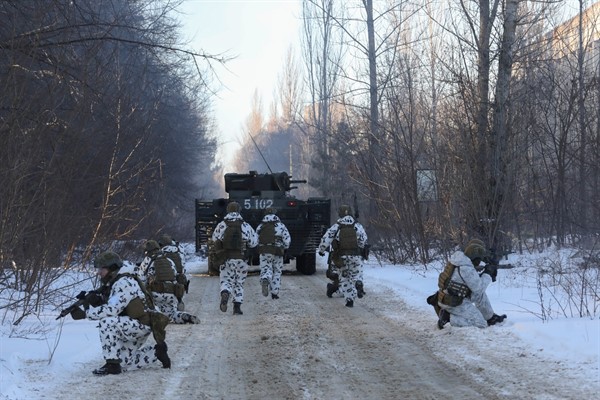Russian President Vladimir Putin’s bellicose speech yesterday, in which he announced that Russia had recognized the independence of two separatist regions of Ukraine and would deploy military forces there as “peacekeepers,” suggests that after months of military posturing and diplomacy, a full-scale invasion may well be at hand. But while it is still impossible to know for sure how the crisis will play out, one consequence of it is already certain: There is no more use in dancing around reality using terms like “strategic competition” or “great power tensions” to describe relations between the West and Russia. We are in a new Cold War.
After the past few months of escalating tensions, it is impossible to imagine the U.S. and its NATO allies, on one hand, and Russia, on the other, going back to their respective corners and maintaining the pretense of anything but open hostility. The past two Security Council sessions on Ukraine have felt like a throwback to a different era, with wildly divergent cross-accusations and a level of hostility that appeared ripe for Khrushchev-inspired shoe-banging at any moment. It is hard to imagine the council, despite its mandate for maintaining global peace and security, producing anything but tit-for-tat vetoes and geopolitical posturing in the near future.
This new Cold War was of course in the making long before the Ukraine crisis, and not purely on a Russia-NATO axis. The U.S.-China rivalry had already inspired Cold War rhetoric, and will likely be the most significant dynamic shaping the international system and the carving out of competing spheres of influence in the coming decades.

